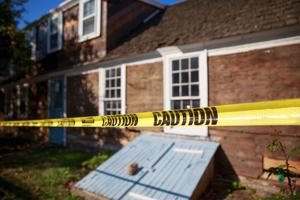Purchasing a home with a haunted history can significantly influence property values and buyer perceptions. As interest in unique real estate continues to rise, the presence or absence of paranormal activity can either deter or attract potential homeowners. In many regions, sellers are not legally obligated to disclose such histories, leading to potential complications in real estate transactions.
Understanding Disclosure Laws
In various states, the legal requirements regarding the disclosure of paranormal events can vary widely. For instance, according to Massachusetts state law, sellers do not have to reveal whether a property has been the site of alleged supernatural phenomena. Similarly, Minnesota law stipulates that sellers are not required to disclose if a home has experienced a suicide, accidental death, or perceived paranormal activity. This lack of obligation creates a grey area for buyers who may be wary of the implications of such histories.
Real estate expert Ryan Dossey, co-founder of SoldFast in San Diego, highlights the importance of transparency in such transactions. He points to services like DiedInHouse, which allow prospective buyers to investigate a property’s past, potentially uncovering details that sellers might choose to withhold.
One notable case, Reed v. King, underscores the impact of undisclosed property histories. In 1983, Dorris Reed purchased a home in California from Robert King, who failed to disclose that a woman and her four children had been murdered there a decade earlier. Reed’s legal team argued that the home, purchased for $76,000, was only worth $65,000 due to its troubling history. The court ruled in Reed’s favor, establishing that a home’s reputation can directly affect its market value.
The Appeal of Stigmatized Properties
While some buyers shy away from homes with dark pasts, others find allure in their unique stories. Joe Luciano, a Massachusetts Realtor, notes that many clients appreciate properties with rich, often haunting histories. He recounts a couple who purchased a home adjacent to a funeral home, emphasizing that the proximity to the historic Salem Witch House added to its charm rather than detracted from it.
Conversely, those who choose to invest in such properties may encounter challenges stemming from the home’s past. Dossey himself experienced issues while renovating a property that was the site of a homicide. He revealed that contractors expressed reluctance to work alone at the location, resulting in significant delays and complications during the renovation process.
While the stigma associated with certain homes can create hurdles, it is essential for buyers and sellers to understand their legal rights and obligations. Engaging with a knowledgeable real estate agent can provide guidance on local laws and help navigate the complexities of purchasing or selling a stigmatized property.
For those contemplating a home with a haunted history, awareness of the potential impact on its value is crucial. While some buyers might be put off by a property’s eerie past, others may find it an exciting opportunity. In the unpredictable world of real estate, the presence of ghosts—real or imagined—can prove to be more than just a spooky story.





































































